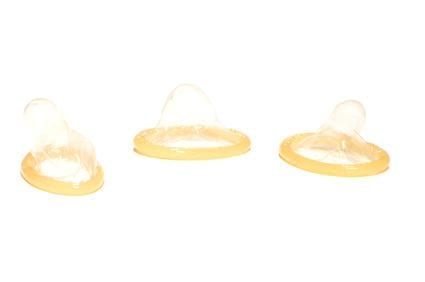Birth control and family planning are an important part of creating the family you hope for, whether you are in the first years of your marriage or reaching the end of your fertility. Faith may play a role in your contraceptive choices, regardless of your denomination. Consider your own preferences, your spiritual beliefs and religious counsel, your health and your lifestyle when selecting the right birth control method.
Hormonal Contraceptives
Hormonal contraceptive choices include birth control pills, the vaginal ring, the shot and the birth control patch. The hormones in birth control protect against pregnancy in three ways. They prevent ovulation, thicken cervical fluid and thin the uterine lining, according to Planned Parenthood. If you believe that life begins at conception, you may have concerns regarding the possibilities of ovulation and fertilization without implantation; however, John Guillebaud, professor of Family Planning and Reproductive Health at University College London, states that modern combination birth control pills and progestin-only options, like Depo-Provera, are effective enough that they should be considered to work pre-fertilization. Progestin-only birth control pills are less effective at preventing ovulation, unless you are breastfeeding. If your faith allows for contraceptives, but not those effective after fertilization, Guillebaud’s research suggests that hormonal contraception is an appropriate choice.
Barrier Methods
If you would prefer to avoid systemic contraceptives like hormonal birth control for physical or religious reasons, barrier methods are an option. Barrier methods include the sponge, diaphragm, cervical cap and condoms. According to Planned Parenthood, condoms are both the most effective and the most accessible of these choices. Barrier methods do not impact a fertilized egg or established pregnancy, and when you are ready to conceive, there’s no chance of temporary infertility as your cycle reestablishes itself as there may be with some hormonal choices. You can also opt to use a barrier method during fertile times if you opt for fertility awareness as a contraceptive choice, according to Toni Wenschler, author of “Taking Charge of Your Fertility.” Barrier methods are appropriate for Christians, unless your faith condemns all artificial contraception.
Natural Options
Natural options rely upon an understanding of ovulation and the menstrual cycle. There are several options; however, effectiveness may vary. Natural family planning (NFP) relies upon basal body temperature and cervical mucus to recognize the signs of fertility. Intercourse is avoided during fertile periods, or another contraceptive is used. During safe days, couples need not worry about birth control. The standard days method is a modern and more effective choice than the older rhythm method. Day 1 through Day 8 of the menstrual cycle are safe, starting from the first day of the menstrual period. Day 9 through Day 20 are potentially fertile, and all days remaining in the cycle are once again safe. You can count days on the standard days method using Cycle Beads or a calendar. These methods are approved by the Catholic Church and are a good choice if you prefer purely natural options. Couples do need to work together to abstain during fertile times, and if you opt for backup birth control instead of abstinence, they will be less effective.
Photo Credit
- contraceptive image by Aleksandr Ugorenkov from Fotolia.com





